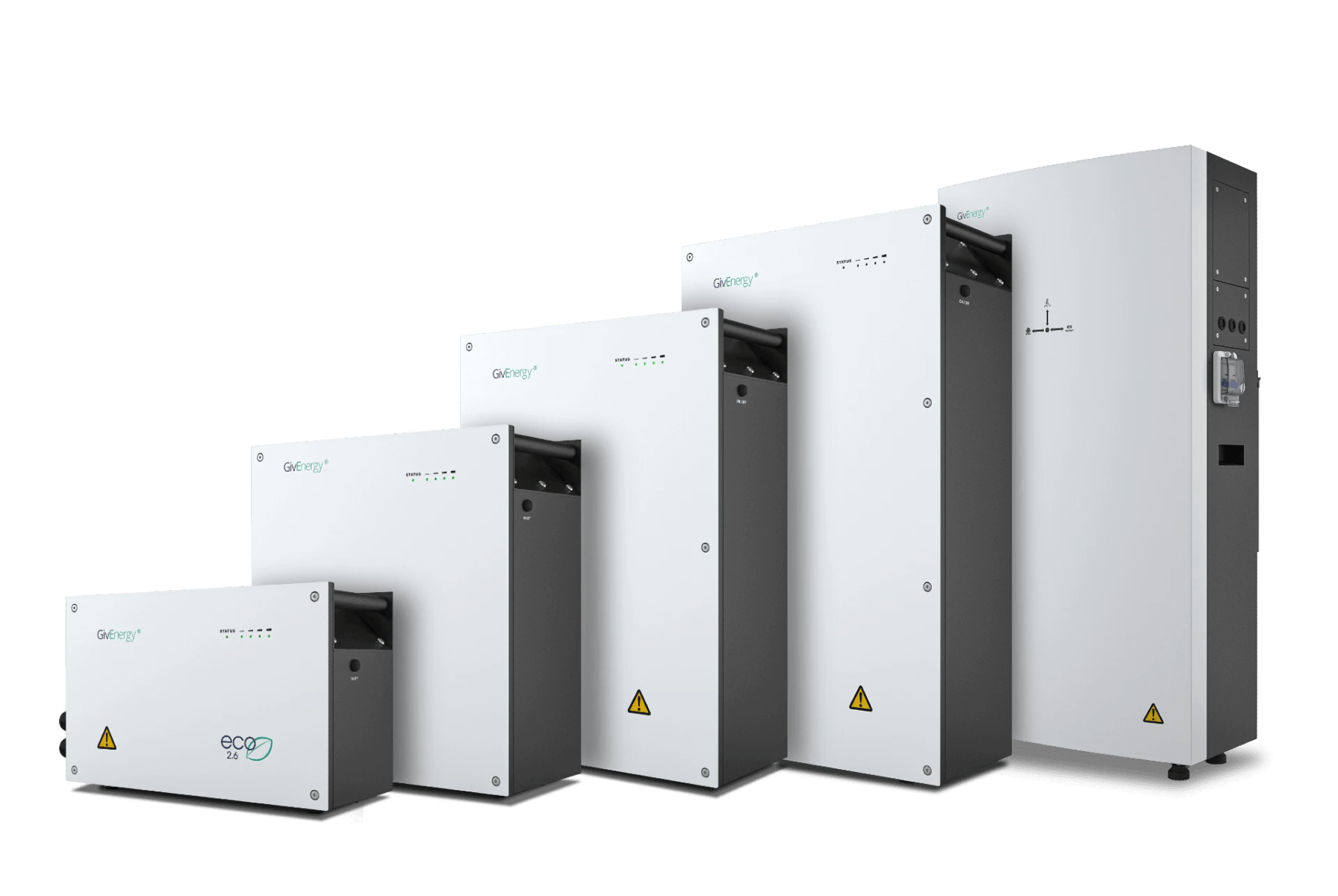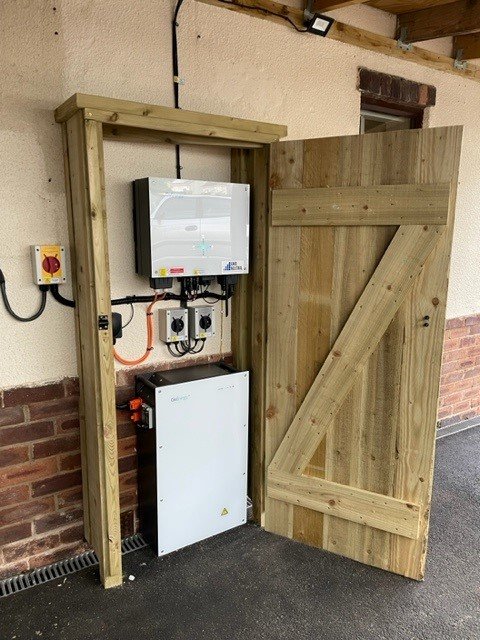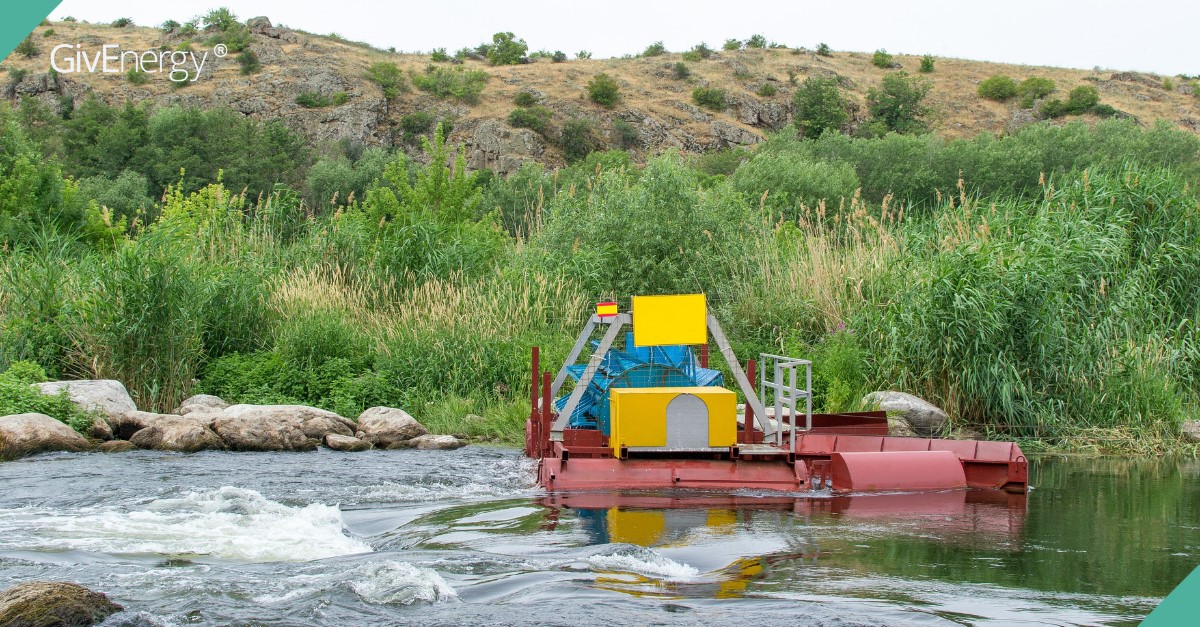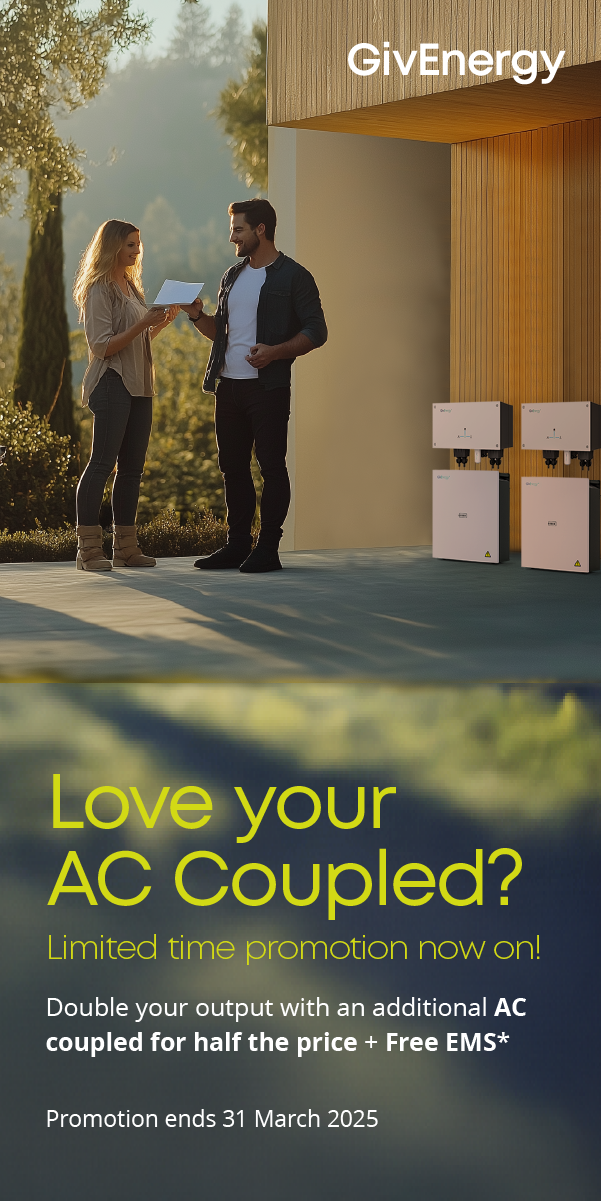A home hydro turbine generator is… let’s just say… a niche option when it comes to home renewables.
Powering your home from the flow of a nearby stream might sound like a green energy dream. But just how feasible is it to install and operate a home hydro turbine generator?

Are we not just better off with good old mainstream solar PV panels?
Here, we explore how home hydro power works, how much electricity you can get from it, how much it costs, and more.
What is a home hydro turbine generator?
As the name implies, hydro power relies on water to generate energy.
A hydro turbine uses the flow of water to generate kinetic energy. In turn, this kinetic energy drives a generator which produces electricity.
Are home hydro turbine generators compatible with home storage batteries?
As with solar and wind, you can combine hydro power with battery storage.

With a GivEnergy home battery, you’re best to use an AC coupled inverter as the ‘brains’ of your hydro system, converting direct current (DC) electricity to alternating current (AC) electricity.
How much electricity can a hydro generator produce?
Depending on the capacity of the turbine, you can get anywhere from 22,000kWh-4,000MWh of electricity annually.

Here’s a breakdown of estimated annual output by system capacity, as noted by The Renewable Energy Hub UK.
- 5kW system – 22,000kWh
- 25kW system – 110,000kWh
- 50kW system – 220,000kWh
- 100kW system – 440,000kWh
- 250kW system – 1,100MWh
- 1MW system – 4,000MWh
Smaller systems
For powering an average-sized home, a smaller hydro turbine generator may suffice.
For instance, take a 1kW system.
You could get an annual output of around 4,400kWh of electricity.
(Note that this assumes a flow of water at a consistent rate.)
The average 2-3 bedroom house in the UK uses 2,700kWh of electricity per year, according to Ofgem.
In theory, this would more than cover the average household’s annual electricity needs.
What do you need to consider before installing a home hydro turbine generator?
You need to think about the following:
1. Planning permission and abstraction licence
2. Seasonal variations
Does the flow of the water source you’re using vary throughout the year? Will it dry up in summer? Will it freeze over in winter?
3. Head and flow
The amount of power you can generate with a hydro generator all comes down to head and flow.
Let’s go through what each term means one by one.
Head refers to the height difference between the intake and discharge points. Higher head means water is flowing from a greater height, ultimately generating more power. Lower head means less power is generated.
Flow is measured in cubic meters per second. To understand if a hydro power project is viable year-round, you need to calculate the long-term annual mean flow.
Equally important for the viability of a hydro project is the relationship between head and flow. A project with high head can get away with relatively low flow. Conversely, a project with low head would need a relatively high flow to generate the required amount of energy.
For a detailed overview of head and flow, check out this guide from Renewables First.
How much does a home hydro turbine generator cost?
Hydro power projects do not come cheap.
Estimates range from around £25k for a 5kW system to around £2.5-3.5m for a 1MW system.
Smaller systems with a capacity of less than 5kW are available online for anywhere between £15 and £4k.
As with all renewables, it’s up to you to do a cost-benefit analysis.
How much will a home hydro turbine generator save you on energy bills over the long-term?
When will you see your break even point?
How much will you spend on maintenance of your system?
Is hydro power right for you?
Let’s be honest.
For most of us, the answer is…
… probably not.
Technical and financial considerations aside, most of us don’t have access to a suitable location for hydro power.
If your property includes a river with a consistent flow of water, home hydro could be for you.
The practicalities and financial benefits work in your favour? Home hydro could be for you.
You’re independently wealthy and just want to go green? Home hydro could be for you.
But for most of us…
… good old rooftop solar PV panels and battery storage would likely be a more realistic path towards energy independence.


You could also consider a standalone battery storage system, if solar is not an option.
Ready for energy freedom?
If you want to cut down on your energy bills and carbon emissions, click here to start your journey.









